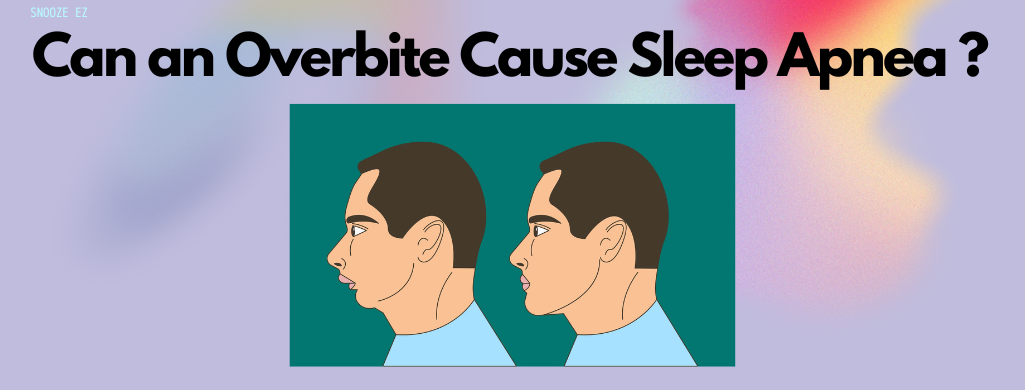Yes, it is possible that an overbite can cause an obstruction in breathing, resulting in sleep apnea.
Have you ever wondered if your overbite could be causing you to have sleep apnea? If you’re experiencing difficulty breathing during sleep or excessive snoring, it may be more than just a nuisance. It could be a sign of sleep apnea, a serious medical condition that requires attention.
Sleep apnea affects millions of people worldwide, and it can lead to a range of health issues if left untreated. While there are many causes of sleep apnea, research has suggested that an overbite could be a contributing factor.
The relationship between an overbite and sleep apnea is a complex one, and it’s important to understand how they are connected. In this article, we will explore the link between an overbite and sleep apnea, how an overbite can contribute to the condition, and what treatment options are available to help alleviate the symptoms. So, if you’re curious to learn more about this connection and how it could be impacting your sleep, keep reading.
How does an overbite affect breathing?
Having an overbite can have a significant impact on how people breathe. One of the most obvious impacts is that breathing through the nose may be difficult or even impossible due to the misalignment of teeth and jaws. An overbite causes your top front teeth to protrude significantly further forward than your lower teeth, making it difficult for your lips to meet when relaxed. As a result, mouth-breathing becomes more common which can then lead to further oral deformities in children as it causes their upper jaw to grow unevenly compared to their lower jaw.
In addition to these issues with nasal breathing, an overbite can narrow the airways, making snoring and obstructive sleep apnea more likely. This condition has serious health implications because sufferers cannot get sufficient oxygen while they sleep; not only does this cause fatigue during waking hours but it can lead to chronic health problems if left untreated for too long.
What are the signs of obstructive sleep apnea?
Obstructive sleep apnea is a disorder that causes interrupted breathing during sleep. It is caused when the airways become partially or fully blocked, which stops you from getting enough oxygen to the rest of your body. Typical signs of obstructive sleep apnea include:
- loud snoring
- pauses in breathing
- waking suddenly gasping for air
- waking with a dry mouth
It can be difficult to diagnose obstructive sleep apnea as many are either unaware that they have it or mistake their symptoms for something else. Therefore, it’s important to be mindful of any signs relating to difficulty breathing during sleep, such as frequent pauses in breathing or long episodes where breathing stops completely. If you experience any of these issues then it’s essential that you see a doctor as soon as possible for further diagnosis and treatment.
How an overbite and/or sleep apnea is treated?
If you or your child have an overbite, it is important to seek professional help for an accurate diagnosis and potential treatment. Generally, an orthodontist can perform comprehensive oral exams to identify the source of your symptoms, and create a tailored treatment plan to correct any misalignment issues.
Treatment may involve braces or clear aligners, tooth extraction, or even more advanced orthodontic procedures, such as palate expansion. In some cases, myofunctional therapy may also be suggested. Neglecting bite problems can lead to ongoing discomfort and health issues such as mouth breathing and snoring. To ensure the best outcome possible, we recommend scheduling a consultation with an orthodontist at your earliest convenience in order to explore all your options for treating the overbite.
If you have sleep apnea and it is not caused by an overbite, treatments typically consist of lifestyle changes such as weight management or a CPAP device that helps keep the airway open while sleeping. Obstructive sleep apnea can significantly reduce quality of life if left untreated, so don’t hesitate to get checked out if you suspect you may have this condition.


